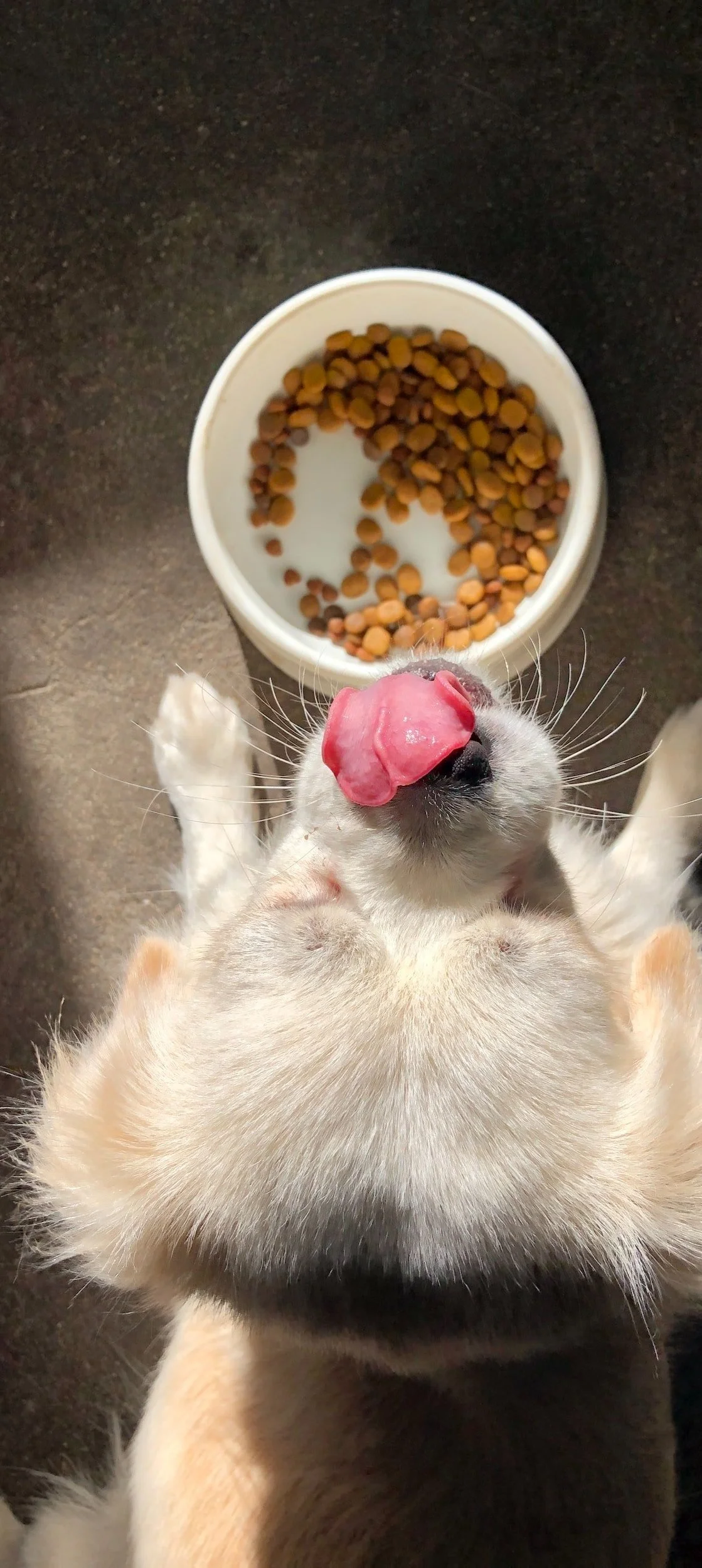Puppy Troubles
Welcome back to another blog. Our most recent blog covered how to raise a baby kitten so we thought it would be only fair if we wrote a similar topic for our dog lovers! We hope that you will find the information contained within this blog of use.
Weaning
The average age it takes for puppies to begin weaning is three to four weeks of age. It is highly recommended to not take the puppies away from their mother too early as it can result in your puppy becoming more prone to diseases and developing behavioral problems.
Nutritious Meals
As puppies need to consume the necessary calories and nutrients they need to grow and thrive, it is important for them to have not only a nutritious meal, but also a well balanced meal. Thus, it would be the most appropriate for a puppy owner to buy dry or wet puppy food. But if you do wish to make your own homemade puppy chow for your baby pooch, make sure that the meal contains an appropriate amount of protein (e.g. chicken, lean beef, fish), carbohydrates (e.g. rice, potatoes), vegetables (e.g. green peas, carrots), fat (i.e. most commonly vegetable oil), and vitamin/mineral supplements.
Social Life
Similar to kittens, puppies also have a socialization period. This socialization period lasts from three to 12 weeks of age. During this time period, it is important for the caretaker to gradually introduce the pup to new people, places, and other potential doggie friends! Doing so would prevent behavioral problems from arising in the future.
Play Time
Most dog owners will agree that the best time for a dog to develop good habits is during puppyhood. This won’t be different with learning the best and safest way to have play time with each other which in this case, would be using toys and not your hands. Playing with your puppy by using your hands can teach them that it is ok to bite and scratch you and other potential strangers or visitors.
Adventuring Onwards!
While it is important that the pup grows physically healthy, it is also very important for the pup to get enough mental stimulation and growth as well. Presenting different kinds of toys and puzzles, smells, new places, etc all contribute to the mental stimulation of a pup. However, it is also important to not overwhelm your pup with so many new experiences that they become stressed. Make sure to approach everything with small steps at a time.
Alone Time
Just like any baby, puppies require more frequent attention than their adult counterparts. According to the American Kennel Club, puppies younger than 10 weeks cannot be left alone for more than an hour and from three to six months of age, they should not be left for longer than their age (e.g. puppies three months of age should not be left alone for longer than three hours). Puppies that are six months or older should not be left alone for four hours or longer. Remember to keep in mind that this guideline is a rule of thumb and can vary depending on your pooch’s age, breed, and personality!
We hope you have found the information contained in this blog useful. Feel free to let us know what else you may want us to cover and we will see you next time!
Citations:
[1] Donovan, Liz. “Puppy Socialization: How to Socialize a Puppy.” American Kennel Club, American Kennel Club, 7 July 2022, https://www.akc.org/expert-advice/training/puppy-socialization/.
[2] Erb, Hilarie. “Puppies like to Roughhouse - Tips for Safe Play between Humans and Dogs.” American Kennel Club, American Kennel Club, 13 May 2021, https://www.akc.org/expert-advice/training/tips-safe-play-humans-and-dogs/#:~:text=Always%20use%20toys%20when%20playing,but%20they%20are%20still%20babies.
[3] Stregowski, Jenna. “Preparing Homemade Puppy Food.” The Spruce Pets, The Spruce Pets, 13 July 2022, https://www.thesprucepets.com/homemade-puppy-food-4174007.
[4] https://www.wagly.com/blog-how-long-can-you-leave-a-dog-alone/
[5] “Weaning Puppies: Step-by-Step Guide.” Dutch, https://www.dutch.com/blogs/dogs/weaning-puppies.







